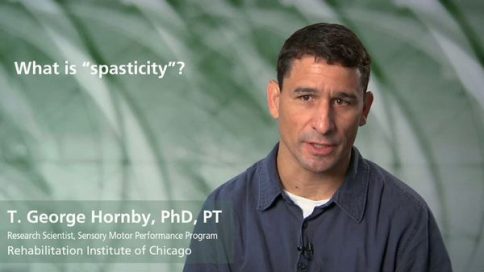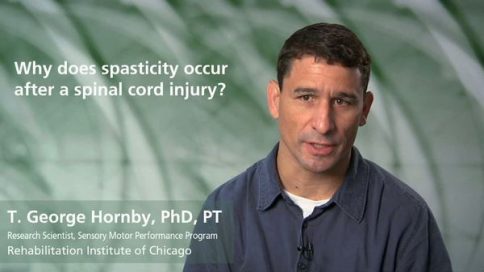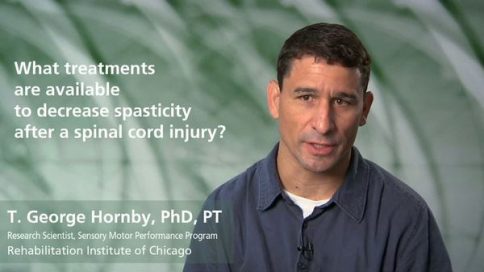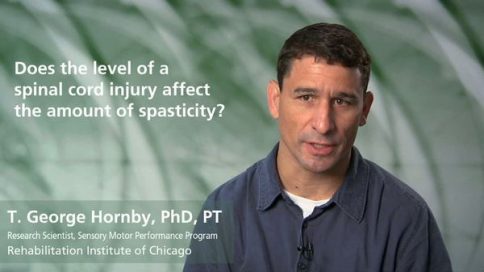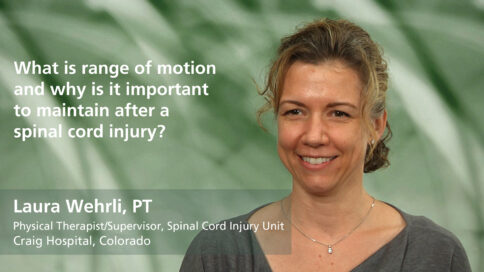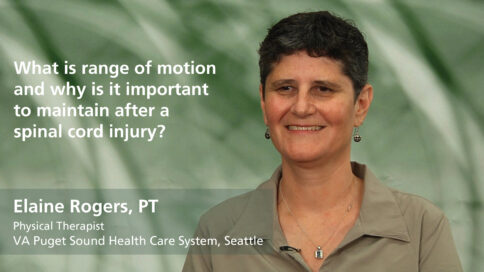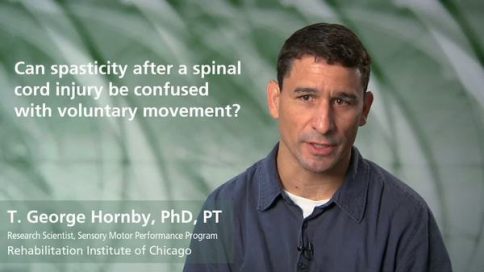When does spasticity usually begin after a spinal cord injury? - T. George Hornby, PhD, PT
|
|
When does spasticity usually begin after a spinal cord injury? |
|
T. George Hornby, PhD, PTResearch Scientist, Sensory Motor Performance Program, Rehabilitation Institute of Chicago |
||
| Read Bio | More Videos by T. George Hornby | |
|
Share |
||
Transcript
Spasticity usually presents in the first few weeks to months after an injury. Early after an injury, there is this period called spinal shock, where the whole spinal cord isn't getting input any more from the brain and it hasn't kind of reorganized itself yet. So when you tap on someone's tendon then, right after the injury, you don't have any reflexes. Gradually, however, these reflexes tend to rebound because then that spinal cord wants that input, and it takes a little while for those changes actually to occur. So in about two weeks to four weeks, maybe months, different types of spastic motor behaviors tend to kind of show up.
Show Less|
|
||
add
When does spasticity usually begin after a spinal cord injury? |
||
T. George Hornby, PhD, PTResearch Scientist, Sensory Motor Performance Program, Rehabilitation Institute of Chicago |
More Videos by T. George Hornby | |
| Transcriptadd | share | |
Spasticity usually presents in the first few weeks to months after an injury. Early after an injury, there is this period called spinal shock, where the whole spinal cord isn't getting input any more from the brain and it hasn't kind of reorganized itself yet. So when you tap on someone's tendon then, right after the injury, you don't have any reflexes. Gradually, however, these reflexes tend to rebound because then that spinal cord wants that input, and it takes a little while for those changes actually to occur. So in about two weeks to four weeks, maybe months, different types of spastic motor behaviors tend to kind of show up.
